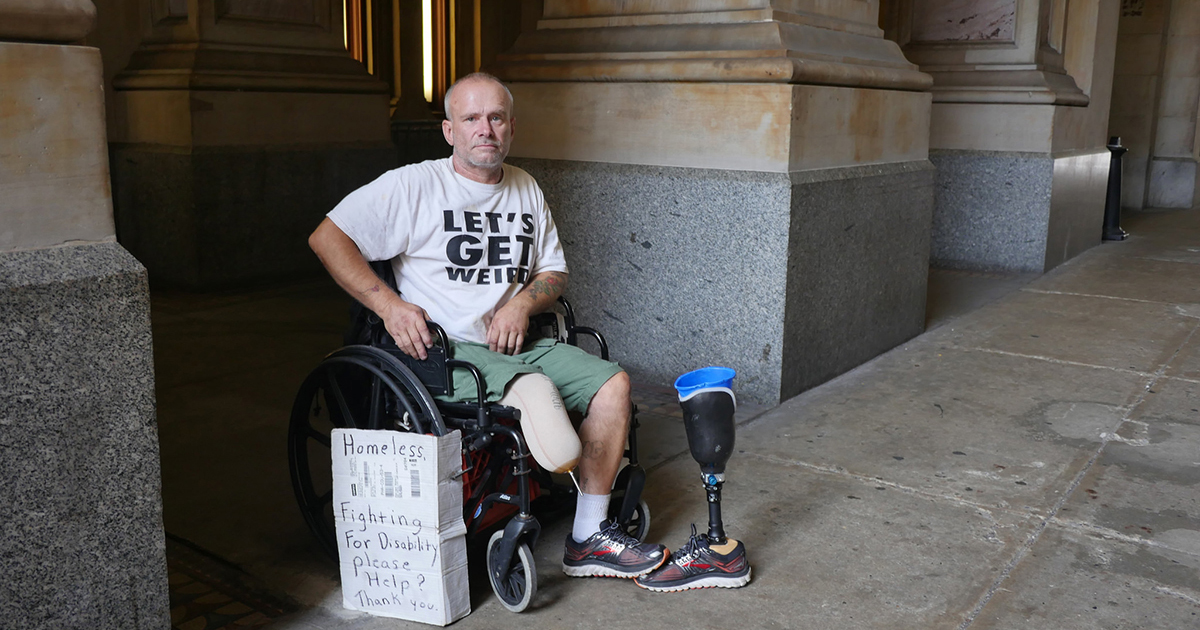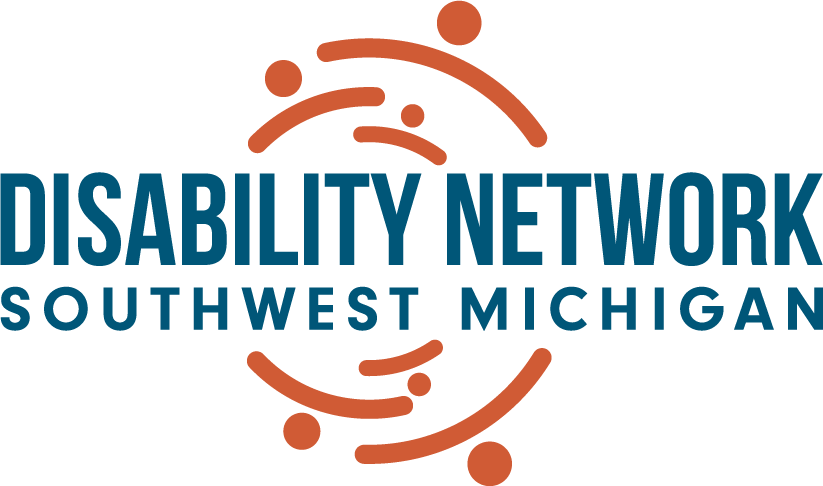
A lack of affordable, accessible housing is an issue that has had a disproportionate impact on people with disabilities for far too long. It is estimated that a quarter of individuals dealing with housing insecurity are people with disabilities. There are several factors contributing to this reality. For this reason, it is imperative that we address the issue of housing insecurity in a holistic way, bringing attention to all the components impacting unhoused individuals and families in order to make long-lasting change.
Please note that we are using the words “unhoused” and “houselessness” instead of “homeless.” These terms have emerged as preferred terms by individuals who are coping with housing insecurity because “houselessness” better captures the situation. The word “home” is more than a physical space, it is composed of community, memories, and family, while a “house” is the actual structure that they’re living without.
One issue that contributes to the number of people with disabilities coping with houselessness is a lack of financial resources. Many people with disabilities are living at or below the poverty line. A common guideline is that no more than 30% of a person’s monthly income should go toward their housing costs including utilities and insurance. It is estimated that more than 8 million adults receive monthly Supplemental Security Income (SSI) payments from the Social Security Administration. The 2022 maximum monthly SSI rate for adults with disabilities is $841. Following the 30% guideline would require SSI recipients to keep their housing costs below $252 per month. For many people, this is an unrealistic goal. As a result of living on a fixed-income, many people with disabilities don’t make enough to pay market rent rates, and are left looking for affordable, and in some cases, accessible housing without success.
Compounding the problem is the lack of truly affordable housing. While many communities offer subsidized and/or low-income housing options, there are often long waiting lists. These wait times can be as long as six months to two years, leaving many people with disabilities without housing while they wait for something to become available. Many shelters across the country are inaccessible leaving some people with disabilities to sleep in unsafe places while they wait for affordable housing to become available.
Another barrier that houseless people with and without disabilities have been coping with for far too long are the oppressive attitudes of potential landlords, property management companies, and lenders. Although there are laws in place to protect the rights of people with disabilities regarding housing, discriminatory housing practices and policies still exist. For example, some landlords require applicants to pay application fees of up to $50 per adult living in the household. These fees can add up, making an already difficult financial situation, even more challenging for people living on a fixed-income. Another example of discriminatory policies is the common practice of requiring that renters earn at least three times the rental amount as a condition of renting. Unfortunately, this is also the case for individuals who have different rent subsidies such as housing assistance vouchers. Although applicants have government assistance, the attitudes and unrealistic requirements of property owners keeps them out.
Houselessness in America is a public health crisis. One that has a substantial impact on people with disabilities. While there are programs in place to keep individuals from living outdoors, such as shelters and portable housing units, many of these aren’t accessible to people with disabilities. Perhaps more important is the fact that these types of temporary solutions are not solutions at all – we don’t need a bigger Band-Aid to hide the problem of houselessness, we need to fix the problem so it does not exist. Funding from local, state, and federal levels needs to be designated for building and maintaining safe, accessible, affordable housing for people, and discriminatory policies and practices must be addressed and prohibited in order for members in our communities who are coping with houselessness to have a safe place to live.
Ways You Can DARE to Impact Change:
- Get connected with the Continuum of Care (CoC) in your area. CoC is a coalition of area agencies working together with houseless residents to help them access needed services. It is a proven way for agencies working together to prevent clients from slipping through the cracks of the system.
- Get involved with the Michigan Coalition Against Homelessness (MCAH). The MCAH is a membership-based organization dedicated to cultivating a community of empowered nonprofits, agencies, and concerned citizens committed to ending homelessness in Michigan. The Coalition for Expanding Housing Access is a subcommittee of the MCAH that focuses on income-based discrimination in housing.
- As a result of there being a lack of accessible, affordable housing across the state, you could encourage your state legislators to support finding a permanent funding stream for the Housing and Community Development Fund. These funds will be designated to address the need for affordable housing in Michigan. Use the links to the right to find your Michigan legislators.
- You can encourage our federal legislators to support the Unhoused Bill of Rights. In July of 2020, Congresswoman Cori Bush introduced this bill to Congress. She is quoted as saying, “The unhoused crisis in our country is a public health emergency, and a moral and policy failure at every level of our government.” The Unhoused Bill of Rights calls on Congress to end the houselessness crisis by 2025. Follow this link to stay informed on the progress of the Unhoused Bill of Rights.
Learn more about the topic:
- Article: Lack of Housing and Mental Health Disabilities Exacerbate One Another
- Article: Recognizing and Addressing Housing Insecurity for Disabled Renters
- Video: Harsh realities of being homeless and living with a disability
Note: This article was written for our DARE to Impact Change publication which provides Disability Advocacy, Rights & Education. Follow this link for more info and to subscribe to our DARE to Impact Change e-publication.
